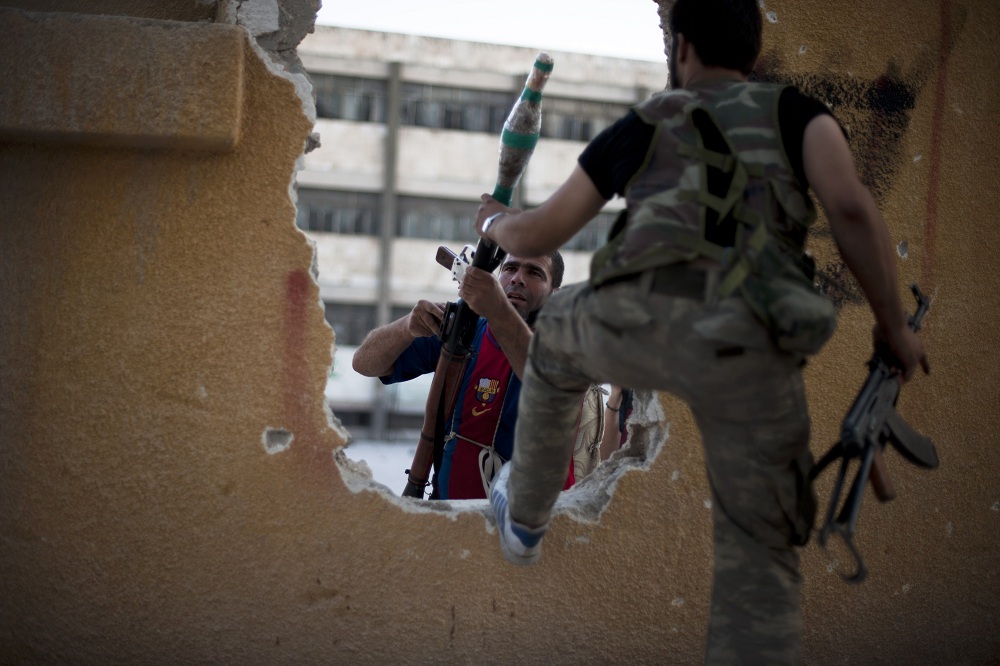Former president Mohamed Morsi was sentenced to life in prison and an additional 15 years by the Cairo Criminal Court on Saturday.
The verdict came after 99 trial sessions in what is known in the media as the “Qatar espionage” case. The defendants in the case, which include Morsi’s head of office Ahmed Abdel Ati and his presidential secretary Amin El-Sherafy, were accused of leaking national security documents and information related to national security to Qatar.
Another six defendants received death sentences after the Grand Mufti argued that the “crimes of the defendants are similar to that of treason” in which punishment should be death.
The six included five men, Alaa Siblan, Mohamed Kilany, Ahmed Afify, Ahmed Ismail, and Ibrahim Helal, and one woman, Asmaa El-Khatib.
The presiding judge, Mohamed Shereen Fahmy, read out the decision of the Grand Mutfi, who said that the six defendants endangered national security which is “worse than killing a person or opposing God’s laws”. The Grand Mufti’s report added that the defendants deserve to be “killed” for their crime.
“They are more dangerous than spies. Spies are usually foreigners, but unfortunately the defendants are Egyptian,” the report continued, while asserting that they should be “made an example of”.
The Mufti also cited classic clerics who agreed to “kill spies to be made examples of and to keep society safe from the dangers they impose”.
Fahmy said that Dar Al-Ifta views leaking documents containing secrets related to the army, military intelligence, and domestic policies as endangering the country.
Afterwards, Fahmy read out the court’s decision which included nationalistic rhetoric relating to the concept of nations and honour.
“All things end and the homeland remains,” he added.
Fahmy explained that the court’s hearing was “fair”, adding that the court listened to the testimonies of 48 eyewitnesses, allowed the defense to present its argument, and reviewed the case papers, which exceeded 1,000 pages.
The court also sentenced Morsi and four other defendants to another 15 years in prison on charges of leaking documents with the aim of endangering the stability of the country.
However, the court acquitted Morsi of physically handing over the leaked documents to a foreign entity.
Abdel Monem Abdel Maqsoud, Morsi’s lawyer, said after the verdict that he will appeal his client’s sentences.
There was a heavy presence of security forces at the session, which was held at the fortified Police Academy in downtown Cairo.
Saturday’s verdict comes one day after the former president was supposed to complete his unfinished presidency term, which was cut short on 3 July 2013 by the military.
In September 2014, late prosecutor general Hisham Barakat had referred the defendants to criminal court on charges of illegally obtaining copies of intelligence reports and confidential reports on the Armed Forces’ plans. They were also accused of intending to deliver the documents to the Qatari satellite network Al Jazeera.
The court described the documents as “top secret”, discussing the positions and weaponry of the Egyptian Armed Forces.
Other than Saturday’s verdict, Morsi has faced three other sentences and is still standing trial in a case where he and others are charged of insulting the judiciary.
Morsi received his first prison sentence in the “presidential palace clashes” case. He was also sentenced to 20 years for inciting violence.
He received both a death sentence and a life imprisonment sentence in the “Hamas espionage” trial and the “prison break trial” respectively.
According to local human rights organisations, since July 2013 around 700 death sentences have been handed to defendents; however, only seven people have been executed so far.
Morsi joined the Muslim Brotherhood during his youth and advanced his position in the political arm of the Freedom and Justice Party in 2012. He ran for presidency and became the first democratically elected president in Egypt.
After being supported by the army, Morsi’s dominating policies showed a tendency to include Brotherhood-affiliated members in state institutions and civil society. Although he supported military leaders, who allegedly participated in severe violations against civilians and protesters in the revolution, he attempted to reduce the role of the army and the police in decision making.
However, peace between the army, who made way for political Islam to have a place in post-revolutionary Egypt, and the Brotherhood didn’t last long, as the army stepped in to overthrow Morsi in July 2013.
While supporters of the Brotherhood call the ouster of Morsi a military coup, current officials in the Egyptian state, including President Abdel Fattah Al-Sisi, call it the ”30 June Revolution”.
After the ouster of Morsi, the Brotherhood faced a tough legal and physical crackdown, with thousands of the group’s members either standing trial for violence related charges or spending time in jail, while hundreds of others have been killed in violent dispersals.
Two years after the political blow to the then organised and united Brotherhood, the group is currently facing major divisions in its lines.

